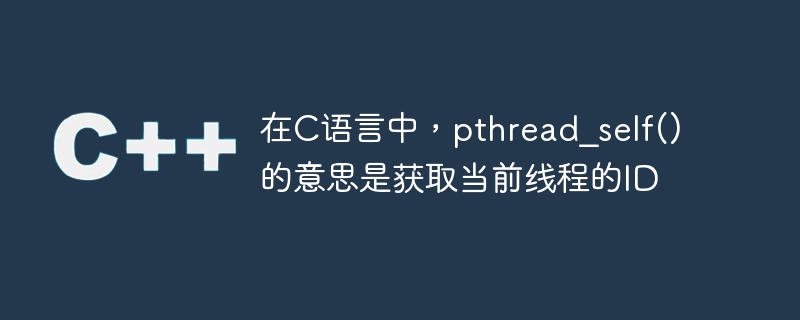Maison >développement back-end >C++ >En langage C, pthread_self() signifie obtenir l'ID du thread actuel
En langage C, pthread_self() signifie obtenir l'ID du thread actuel
- WBOYWBOYWBOYWBOYWBOYWBOYWBOYWBOYWBOYWBOYWBOYWBOYWBavant
- 2023-09-18 15:21:041402parcourir

Nous examinons ici le rôle de pthread_self() en langage C. La fonction pthread_self() est utilisée pour obtenir l'ID du thread actuel. Cette fonction identifie de manière unique un thread existant. Mais s'il y a plusieurs threads et qu'un thread se termine, l'identifiant peut être réutilisé. Par conséquent, l’identifiant est unique pour tous les threads en cours d’exécution.
Exemple
#include <stdio.h>
#include <stdlib.h>
#include <pthread.h>
void* func(void* p) {
printf("From the function, the thread id = %d</p><p>", pthread_self()); //get current thread id
pthread_exit(NULL);
return NULL;
}
main() {
pthread_t thread; // declare thread
pthread_create(&thread, NULL, func, NULL);
printf("From the main function, the thread id = %d</p><p>", thread);
pthread_join(thread, NULL); //join with main thread
}Sortie
From the main function, the thread id = 1 From the function, the thread id = 1
Ce qui précède est le contenu détaillé de. pour plus d'informations, suivez d'autres articles connexes sur le site Web de PHP en chinois!
Déclaration:
Cet article est reproduit dans:. en cas de violation, veuillez contacter admin@php.cn Supprimer
Article précédent:Programme C++ pour calculer le plus grand facteur communArticle suivant:Programme C++ pour calculer le plus grand facteur commun

